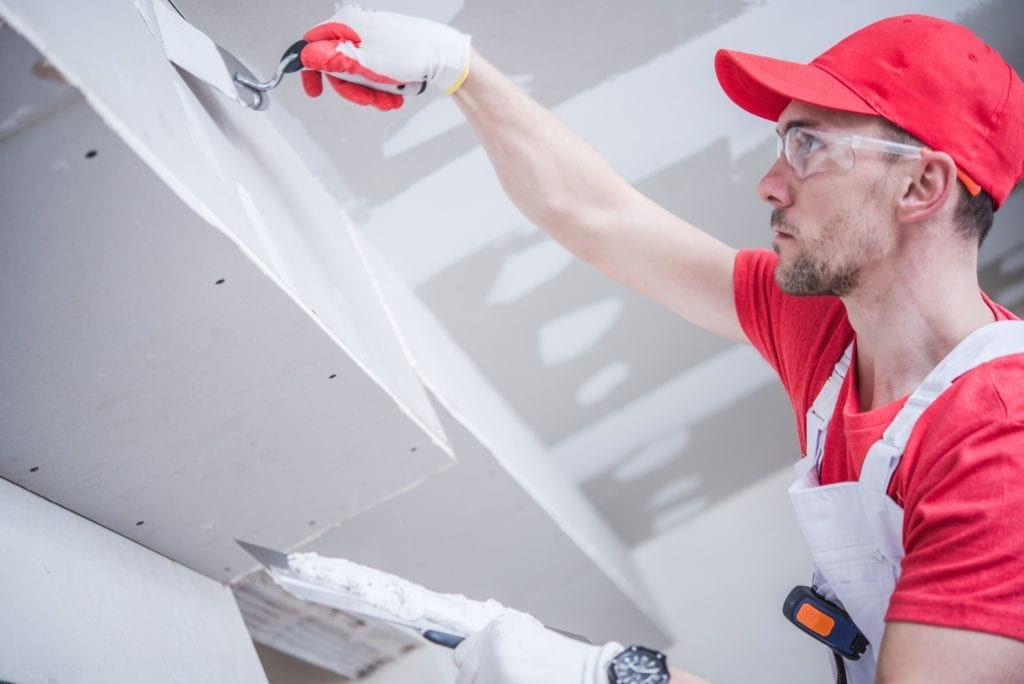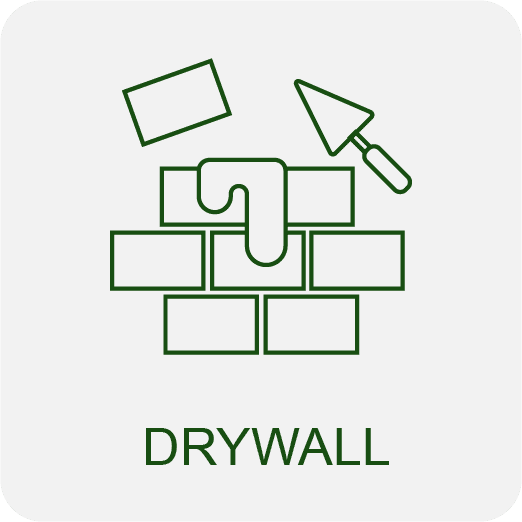
Common Types of Drywall
Drywall is a popular construction material that is used extensively in both residential and commercial buildings. There are several different types of drywall, each with its own advantages and disadvantages. In this article, we will take a look at the most common types of drywall-plasterboard, glass-mat panel, metal-stud wall, and gypsum board.
- Plasterboard
Plasterboard is the most common type of drywall. It is made from gypsum plaster that is pressed between two sheets of heavy paper or fiberglass mat. Plasterboard is strong and durable, making it ideal for walls and ceilings in both residential and commercial buildings.
- Glass-mat Panel
Glass-mat panel is a type of drywall that is made from glass fibers and matting. It is lighter than plasterboard and is often used in interior walls where weight is a concern. Glass-mat panel is also fire resistant and does not absorb water, making it ideal for use in bathrooms and kitchens.
- Metal-stud Wall
The metal-stud wall is a type of drywall that is made from metal studs. It is strong and durable, making it ideal for load-bearing walls. Metal-stud wall is also fire-resistant and does not absorb water, making them ideal for use in bathrooms and kitchens.
- Gypsum Board
A Gypsum board is a type of drywall that is made from gypsum plaster. It is lighter than plasterboard and is often used in interior walls where weight is a concern. Gypsum board is also fire-resistant and does not absorb water, making it ideal for use in bathrooms and kitchens.
As you can see, there are several different types of drywall available on the market. Each type has its own advantages and disadvantages. When choosing the right type of drywall for your project, it is important to consider the specific needs of your project.

What Are the Benefits of Each Type of Drywall?
Each type of drywall will offer different benefits depending on the project.
- Plasterboard will be the strongest type of drywall and is perfect for load-bearing walls or any area where a more durable wall is needed.
- Glass-mat panel is fire resistant and does not absorb water, making them safe for use in bathrooms and kitchens by reducing the risk of mold.
- Metal-stud wall is also fire-resistant and does not absorb water, making them ideal for use in bathrooms and kitchens.
- Gypsum board is the lightest type of drywall and is perfect for areas where weight is a concern.
What Are the Disadvantages of Each Type of Drywall?
- Plasterboard is the heaviest type of drywall and can be challenging to work with.
- Glass-mat panel is the most expensive type of drywall.
- Metal-stud walls can be difficult to install.
- Gypsum board is the weakest type of drywall and is not suitable for load-bearing walls.
Talking with a local contractor can aid in deciding which type of drywall is best for your project. They will help you weigh out the pros and cons to find the perfect solution for your needs.

What to Consider When Purchasing Drywall
When it comes to drywall, there are a few key considerations that will help you select the best type for your project. These include:
– The project budget
– The weight of the drywall
– The fire resistance of the drywall
– The water absorption of the drywall
– The strength of the drywall
If you keep these key considerations in mind, you will be sure to select the best type of drywall for your project.
No matter what type of drywall you choose, be sure to purchase from a reputable supplier. Poor-quality drywall can result in problems down the road, so it is important to invest in high-quality materials.
Which Type of Drywall Should You Choose?
The type of drywall you choose will depend on the specific needs of your project. If you need a strong and durable wall, plasterboard is the best option. If you need a fire-resistant and waterproof wall, a glass-mat panel or metal-stud wall is the best option. If you need a lightweight wall, a gypsum board is the best option.
When it comes to drywall, there are several different types available on the market. In this article, we have looked at the most common types of drywall-plasterboard, glass-mat panel, metal-stud wall, and gypsum board. Each type of drywall has its own advantages and disadvantages. When choosing the right type of drywall for your project, it is important to consider the specific needs of your project.

How Much Will Drywall Cost?
Setting a budget for your drywall project is important. Drywall can range in price from $0.50 to $1.50 per square foot. The cost will depend on the type of drywall you choose and the specific needs of your project. There are a few things to consider that will affect the overall cost of drywall:
Material
Drywall is a popular building material because it is relatively cheap and easy to work with. The cost of drywall will depend on the type of drywall you choose, the size of the project, and the location of the project. Drywall generally costs between $0.50 and $1.50 per square foot.
Size of Project
The cost of drywall can vary depending on the size of the room and the type of drywall used. On average, it costs between $500 and $1,000 to drywall a room. This price includes the cost of materials and labor.
If you are doing a small drywall project, such as patching a hole, the cost will be on the lower end of this range. If you are doing a large drywall project, such as finishing an entire basement, the cost will be on the higher end of this range.
- The cost of materials will also vary depending on the type of drywall you choose. The most common type of drywall is a 1/2-inch thick gypsum board. This type of drywall costs between $0.50 and $1.00 per square foot.
- The next most common type of drywall is a 5/8-inch thick gypsum board. This type of drywall costs between $0.75 and $1.25 per square foot.
- The least common type of drywall is 3/4-inch thick gypsum board. This type of drywall costs between $1.00 and $1.50 per square foot.
Labor
The labor cost will also vary depending on the project size. If you are doing a small drywall project, you can expect to pay between $50 and $100 for labor. If you are doing a large drywall project, you can expect to pay between $500 and $1,000 for labor.
To get an accurate estimate of the cost of your drywall project, it is best to contact a local contractor. They will be able to give you an accurate estimate based on the specific needs of your project.
Now that you know more about the different types of drywall available and the costs, you can make an informed decision about which type is best for your project. Be sure to consult with a local contractor and get a quote to get started on your drywall project today!

Leave a Reply